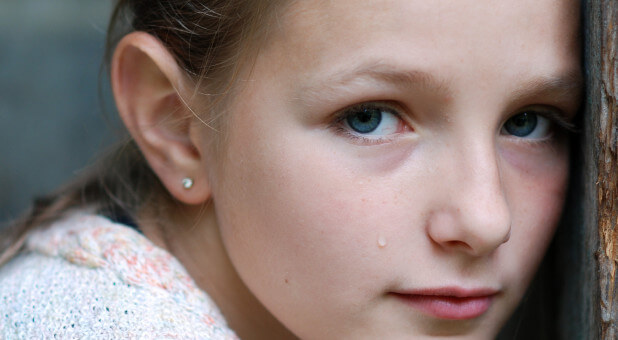The kids were dirty; the food was terrible; the showers (when we had running water) were freezing; there was not one restroom with toilet paper in it; I got really sick one summer; I got a staph infection another summer—but somehow, it was a little bit of heaven on earth to me.
I loved holding their grimy hands. I loved sitting at their orphanage tables with them, even if we were eating mystery meat (and a mysterious porridge that seriously resembled Elmer’s glue). I loved running around and playing games with them.
But most of all, I loved getting eye-to-eye with them, giving them my full attention, and hearing their stories.
I can’t ever forget those stories.
These orphans across the ocean weren’t merely social issues and statistics. They became my friends.
I saw the scarred arms of a teen who’d tried to take her own life. I held the skinny, malnourished frame of a 10-year-old who was otherwise rarely, or maybe never, embraced. I felt the clinging grip of a 12-year-old girl who’d wrapped herself around me, sobbing, asking me to please not leave.
These children changed me. And I knew I wanted to spend my life serving them. I wanted to move to Africa. Or Eastern Europe. Or really, any far off land.
Wherever I ended up living, there was just one condition I required that place to meet: There had to be orphans there. And in my thinking at that time, I thought working with orphans required a move across the ocean.
So imagine my confusion and wrestle when I felt God clearly telling me to put down roots in Kansas City, Missouri. I actually rebutted with, “But Lord, what about the orphans?”
But God knew what He was doing, of course.
He wanted to broaden my vision.
My mind’s picture of “orphan” was that of a child in a dusty village, in a crowded orphanage, or on the street in an economically developing nation.
But I was missing something.
Those overseas trips were unquestionably valuable—to the children, to the Lord and to my own heart. But I’d been solely far-sighted. And thus, I missed what was right in front of me. Right down the road.
One day—a day I know will always mark me—I met a 4-year-old boy who was living with some friends of mine. And he asked me to hold him.
I was a stranger. He was desperate for a safe place to lay his head.
He was fatherless, floating around in foster care, longing for security, longing for love, longing to belong somewhere and to someone.
So I held him because he asked. And as I held him, my heart was pierced through. My eyes were opened. The truth that would initially surprise me, just before it seared me, is that the orphan’s reality runs through America too.
More than 400,000 displaced children are right here in America.
And in these recent years, I’ve started coming up close to them, and getting into their lives.
“Foster kids,” we call them. Our affluent nation has set aside third-world terminology like “orphans.”
Instead of having orphans who live in orphanages, we have foster children who live in residential treatment facilities.











































